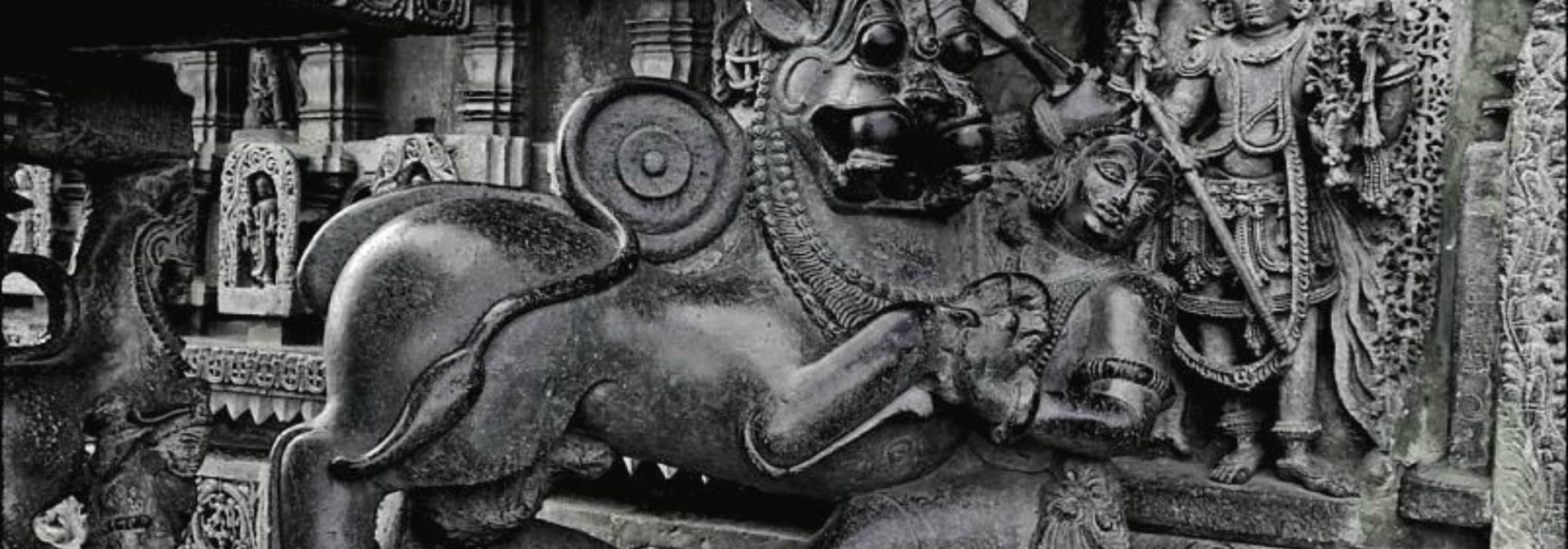अप्पदीक्षित ! किमित्यतिस्तुतिं वर्णयामि भवतो वदान्यताम् |
सोऽपि कल्पतरुरर्थसिद्धये त्वद्गिरामवसरं प्रतीक्षते ||
Govinda-dīkṣita was the minister and the mentor of Acyuta-nāyaka and his son Raghunātha-nāyaka. The kingdom practically owed its golden days to him. He was a great musician, an agnihotri, a performer of the yajña-s, a scholar of the pūrva-mīmāmsa and uttara-mīmāmsa, a scholar of several śāstras, an expert statesman, a fine poet and, above all, a compassionate humanitarian. Although he was involved in the administration of the state, he kept up the traditional six-fold practices (ṣaṭkarmādhikāra) of the Brahmins. His children Yajñanārāyaṇa-dīkṣita and Veṅkaṭamakhi were renowned scholars too. Appayya-dīkṣita was a close friend and like a teacher to him.
Govinda-dīkṣita originally hailed from Karnataka and belonged to the Hoysaḻa-Karnāṭaka sub-sect of Brahmins. Once, he was on a pilgrimage with his students. When they reached the Madhyarjuna region, he was to start teaching the ‘Kalpataru’ of Amalānanda. As Govinda-dīkṣita was trying to unravel the issues connected with the work, Appayya-dīkṣita happened to pass by that place, by mere coincidence. He resolved all the doubts pertaining to the work in a simple manner. It was then that Govinda-dīkṣita composed the current verse in the rathoddhata meter, extempore:
“Revered Appayya-dīkṣita! How do I praise your generosity? Even the ‘Kalpataru’ (the work of Amalānanda) needs to resort to your words for it to be meaningful (comprehensible).”
The poem puns on the words ‘Kalpataru’ and ‘artha-siddhi’. Kalpataru is the mythical wish-fulfilling tree (and is also the name of Amalānanda’s work). ‘Artha’ means ‘material/ money’ and also ‘meaning’.
‘The wish-fulfilling tree needs to resort to your words for it to gain money’ – is another implication of the verse.
This pun-filled verse later inspired Appayya-dīkṣita to write a commentary on the ‘Kalpataru’, called the ‘Parimala’
(‘Śārīraka-bhāṣya’ on the ‘Brahma-sūtras’ was written by Sri Śaṅkarācārya. Vachaspatimishra wrote a ‘ṭīka’ called the ‘Bhāmati’ on the ‘Śārīraka-bhāṣya’. An elaboration of the same is the ‘Kalpataru’ by Amalānanda. Appayya-dīkṣita’s ‘Parimala’ is a commentary on it. To this day, these are authoritative works on Advaita-vedānta)
Adapted from Kannada by Arjun Bharadwaj
(The original article is from the anthology Kavitegondu Kathe.)










































